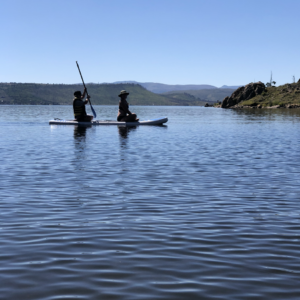Could Training Wheels be the Secret to Your 2014 Success?
A child sits uneasily on a bicycle, while a parent runs alongside, gently pushing them down the sidewalk, keeping the bike upright. Eventually, the parent has to let go and let the child succeed or fail on their own, but giving up that control, that security of safety, can be tough.
Enter: training wheels. Even after the parent lets go, the child still has support to help them succeed. No parent has to give their kid training wheels, but when the alternative is sending them off alone, it’s a logical next step.
You could say we have invested in training wheels for our clients, too. By providing our clients with more robust SEO and internet marketing services we’re giving them a better chance to succeed, even after we’ve let their bikes go er… pushed their sites live.
With 2014 just around the corner, now is a great time to take a look at what you’re providing your customers or clients and, more importantly, what you aren’t yet.

In the early 2000’s, we knew about SEO and internet marketing, but as website development was our core service, we weren’t certain how to “productize” them. Once we began expanding our core services, we refined our offerings; we wanted to do everything we could to help our clients succeed after launch.
It was in our own best interest to offer our clients more than just a functional site… the sites needed to perform. If we didn’t provide our clients with those services they’d either get them from someone else or slowly flounder. Either way, how would we look as a web design agency if our portfolio was full of sites that had been hijacked by other firms, or sites for defunct businesses that had failed?
Sure, it can seem like an intimidating prospect to expand your offerings, as it undoubtedly costs money. But what if not expanding is costing you money as well?
There are great examples out there of companies, big and small that have done the same. In some cases, those changes have become commonplace for their industries.
Apple
iTunes was originally release in January, 2001 as a media player only. Apple realized that the music had to come from somewhere, though, and within two years the iTunes Music Store was launched. It may have been small at the beginning, but it’s now the biggest music vendor in the U.S.
Amazon
The Amazon Kindle hit shelves in 2007 and was hugely popular. While Amazon was directly involved in the sale of ebooks for the Kindle, the ebooks themselves were coming from elsewhere, meaning Amazon was paying money every time something sold.
This led to the creation of Amazon’s publishing arm in 2009. Now Amazon is more involved in the entire process: from publishing ebook to distributing them.
Evernote
A note-taking app, Evernote allows a user to sync their notes and documents across multiple devices and platforms (I started this post on my laptop and will be finishing it on my desktop).
Recently, they launched the Evernote Market for their users. This computer program based on digital word-processing, now sells everything from printers to paper notebooks, even wallets, backpacks, and business socks.
It would have been easy for the people at Evernote to limit their view to the app they created, but they understood it was a great office tool–why couldn’t they offer their customers other office tools and supplies as well?
Do I really need to go into detail here? Google launched as a search engine in 1998… you know the rest.
Small Planet E Vehicles
Small Planet, owned by Tom Wilson, is a client of ours here in Longmont specializing in electric bikes. While the ebikes themselves are the main offering of the business, there’s more that goes along with it.
Imagine if Tom had opened his doors and said “You can buy a ebike here, but sorry, we’ve got no helmets, no locks, no lights.” His customers would be forced to go elsewhere to purchase related items that he could easily offer and that are, nowadays, expected along with the purchase of a bike.
Tom recently created a fleet program, the goal of which is to push corporations, hotels, municipalities and others to make electric bikes available to employees and customers. Small Planet E Vehicles isn’t in the business of corporate wellness, but when their product is a means to that end, it makes sense to get involved.
Now… Your Turn
Don’t feel limited by the current scope of your business. Take a look at what you’ve provided your customers and clients with to this point, and consider how that fits in with the bigger picture. What’s the natural progression of your offering for 2014 and beyond? Are there areas of expansion based on how/why/when customers come to you?
What will your ‘training wheels’ be in 2014?
Other Articles
Mastering Black Friday Cyber Monday Campaigns: Strategies for Outdoor Retail Brands
Black Friday Cyber Monday (BFCM) has become a pivotal period for businesses across various industries, and the outdoor retail sector...
Why Leveraging Discounts Can Give Your Business a Competitive Edge
Consumers today have an infinite amount of information at their fingertips. Amid the sea of brands and products they have...
Navigating the Off-Season: Marketing Strategies for Outdoor, Overlanding, and Camping Brands
The world of outdoor adventure, overlanding, and camping is fueled by the passion for exploration, nature, and the thrill of...



